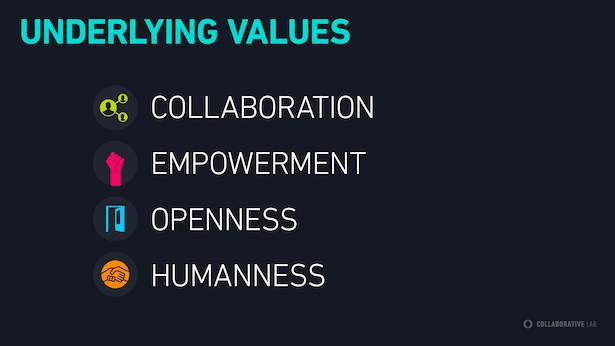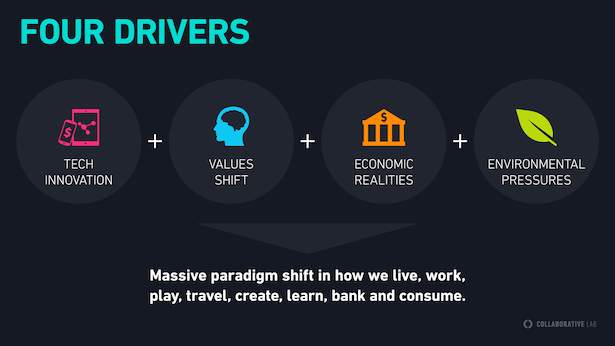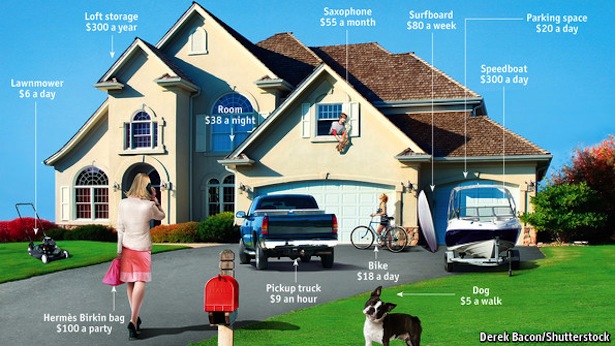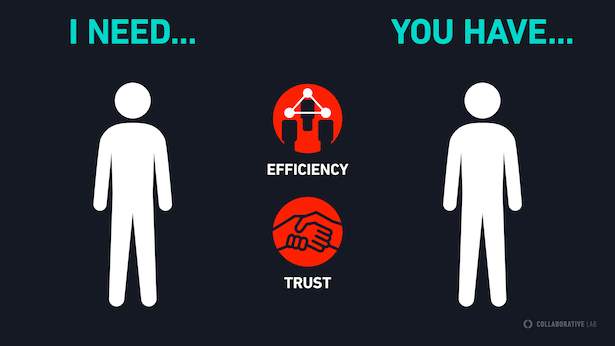“A Shareable City enables residents to efficiently and safely share all kinds of assets – from spaces to cars, skills and utilities – to create stronger, healthier and more connected communities.” – Collaborative Lab
For those of you who missed April Rinne’s stop in Toronto as part of the Collaborative Economy Tour, the co-founder of the Collaborative Lab spent the day cheering us on to Imagine Toronto as a Shareable City.

The day started with a workshop that brought together the city’s policy-makers, entrepreneurs, and stakeholders to allow for ideation around the challenges and opportunities to the growth of the collaborative economy in the City of Toronto. The implementation of the collaborative economy requires the attention of government on a number of fronts – taxation, zoning, insurance, and licensing. April highlighted, that it is important to remember that “policy reform is not unique to the sharing economy – it is a natural part of the course of innovation.” Governments need to monitor social and economic trends and adopt new legislation to create an environment that will encourage, and not stifle, innovation across all sectors.

In the afternoon, Lucy Gao, Toronto’s curator of collaborative consumption, facilitated a discussion amongst excited enthusiasts and those engaged on the front lines of the sharing economy, including the Toronto Tool Library, Loca Woka, Repair Cafe Toronto and Trade School Toronto. The purpose of the session was to ideate on how to expand the existing collaborative consumption community. It was clear that the group wants to see sharing become more mainstream and dreams of Toronto becoming a shareable city.

Why do we want to become a Shareable City?
So many reasons!
1- Sharing is one of the oldest behaviours known to mankind. Our society has moved away from a culture of sharing in many ways, focusing more on the pride of ownership. Now, it is time to bring sharing back like never before.
2- You can save money or find new sources of income by sharing. Sharing works to unlock wealth that is trapped in idling assets. Just think of all the clothes, products and knick knacks sold on eBay since 1995. And, did you know that a car sits idle for an average of 23 hours a day? In addition, a car costs an approximately $715/month to maintain. No wonder car sharing has become one of the more popular and mainstream business models in the sharing economy.
3- With the growing stress on our environment, sharing offers the opportunity for us to utilize resources more efficiently and sustainably.
4- Sharing is a great way for us to build resilience ahead of crisis, enhance connectedness and establish stronger social ties across our communities.
Growing the collaborative economy is most dependent on the participation of citizens. That’s right – YOU! April has travelled the world exploring the evolving sharing movement and to date says, “The only exceptions I can see to the sharing economy are toothbrushes and wedding rings.”

Are you interested in joining the ranks of sharers and collaborators?
– Join the Collaborative Consumption Meetup group here in Toronto to participate in the conversation.
– Take notice and support the growing participants of the collaborative economy – Not Far From the Tree, Artscape, The Make Den, Foodshare. You can check the Toronto Sharing Map and the others mentioned above and in the last post.
– Consider what assets you have to share – skills, appliances, car, space, etc. – OR what assets you wish you could access instead of taking on the burden of ownership – car, pet, room, desk, bike, tools, etc. You might be surprised to find there’s a market out there!
– Visit Collaborative Consumption to learn more.
***
The collaborative economy is redefining Toronto by encouraging a culture of sharing and collaboration, as well as helping us to re-imagine how we utilize the resources available to us. There is a world of abundance for people to tap into. Let’s hope we can find new ways to tap into the idling assets all around.



